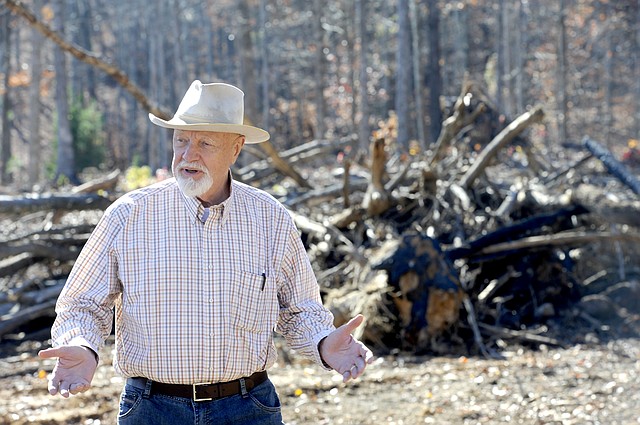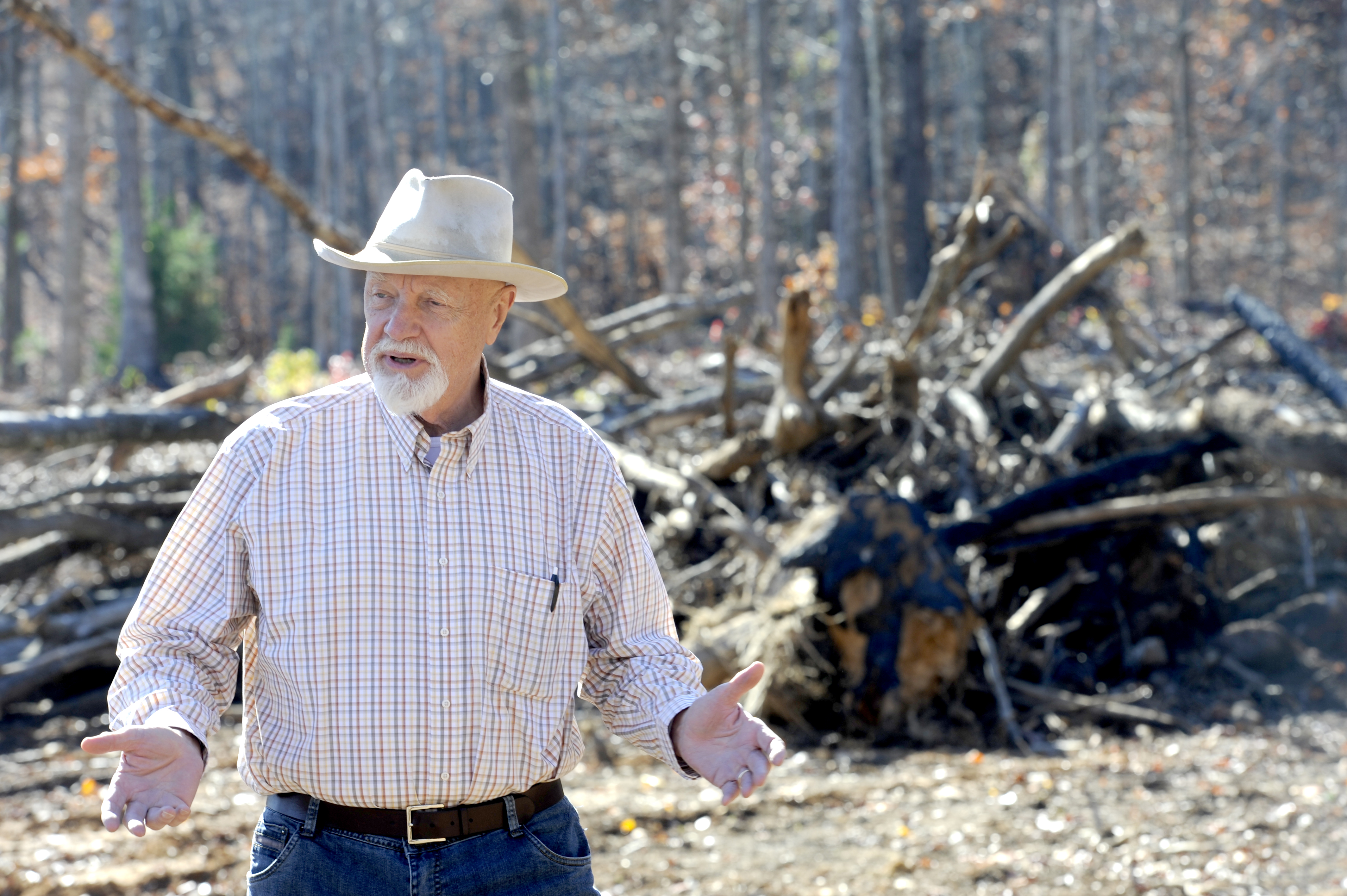New regulations in Walker County add significant costs to burning
Friday, January 1, 1904
FLINTSTONE, Ga. -- Driving around his tornado-ravaged farm, Burton Brown's mental to-do list grows with every fallen tree he finds.
"We'll try to get this, too," he said, topping a hill for a view of uprooted stumps near his buffalo pasture. "I'll have to do it by the first of the year. I don't have much longer."
He and other Walker County landowners must hustle if they plan to burn downed trees before new regulations go into effect Jan. 1, adding significant costs to burning.
And they have 3,757 of their neighbors to blame for it.
Regulations from the Georgia Environmental Protection Division require that, in a county of 65,000 residents or more, anyone burning debris from land clearing must dig a pit and use a huge blower to form an "air curtain destructor" to deal with the smoke.
Landowners in Walker County, which climbed from 61,053 residents in 2000 to 68,756 in 2010, now must abide by those rules along with residents in Barrow, Bulloch, Newton, Troup and Walton counties.
EPD officials say the "curtain" of air traps the smoke and forces it back into the fire where it is re-burned until most of it is gone.
"This makes a much cleaner burn, emitting considerably less smoke and pollution," states a news release on the EPD website.
But the system costs money to rent and install. Walker County farmer Larry Rigsby said it would cost him $10,000 or $11,000.
Rigsby, like Brown, is now rushing to burn trees taken down as he carves pasture land out of his wooded lot.
"This may be one of my last opportunities" to burn, he said.
Jim Kelly, manager of the EPD's Air Protection Branch Planning and Regulatory Office, said smoke from burns is a "significant contributor" to fine particulate air pollution.
"It's a health issue, and it's also a public safety issue," he said. "When you get a higher population, those fires became a problem."
The department usually grants waivers for storm-related debris if the area has been declared a disaster, Kelly said. There are also exceptions for seasonal agriculture burns which are standard practice on certain crops.
The rules are based on standards backed up by research, Kelly explained.
"These things aren't willy-nilly," he said.
But Brown, a self-described "treehugger," called the requirements "impossible and impractical" in his case. Debris piles are scattered all across his 400-acre tract, meaning he'd have to dig several pits and move the blower to each spot.
"It's a good system, you just couldn't do it," he said.

